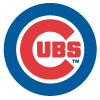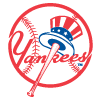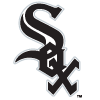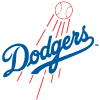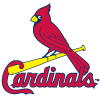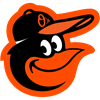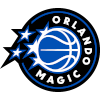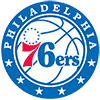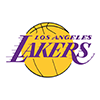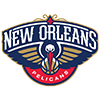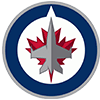I just had my University's graduation on Sunday. I'm now in my third year as a full time faculty member in my department and I've taught most of the 50+ graduates of our Neuroscience program at least two or three classes. We got to know each other and when I gave them their diplomas, it was with a mixture of pride and nostalgia. I'll really miss them! Among several very sweet gifts I received at graduation was a really nice, very expensive bottle of red wine.
Now, I'm a wine drinker, but neither a connoisseur nor a snob. There are some I like better than others, but in general I'm open minded and easy to please when it comes to wine. While I'm sure I'll enjoy this lovely bottle, I can't help but wonder just how much more than my standard $12 range of wines I'll enjoy it.
I'm reminded of a now classic experiment done to study how the brain processes value. One version just happens to use wine as the commodity. The subjects in the experiment were given two wines to taste from glasses that were tagged with the price of the bottle. People overwhelmingly preferred the wine that cost more--according to the tag they could see. The trick employed by the scientists was to alter the contents of the glasses so that sometimes they were actually the same wine, sometimes the less expensive was labelled as the more expensive, and sometimes the more expensive was properly labelled.
I just had my University's graduation on Sunday. I'm now in my third year as a full time faculty member in my department and I've taught most of the 50+ graduates of our Neuroscience program at least two or three classes. We got to know each other and when I gave them their diplomas, it was with a mixture of pride and nostalgia. I'll really miss them! Among several very sweet gifts I received at graduation was a really nice, very expensive bottle of red wine.
Now, I'm a wine drinker, but neither a connoisseur nor a snob. There are some I like better than others, but in general I'm open minded and easy to please when it comes to wine. While I'm sure I'll enjoy this lovely bottle, I can't help but wonder just how much more than my standard $12 range of wines I'll enjoy it.
I'm reminded of a now classic experiment done to study how the brain processes value. One version just happens to use wine as the commodity. The subjects in the experiment were given two wines to taste from glasses that were tagged with the price of the bottle. People overwhelmingly preferred the wine that cost more--according to the tag they could see. The trick employed by the scientists was to alter the contents of the glasses so that sometimes they were actually the same wine, sometimes the less expensive was labelled as the more expensive, and sometimes the more expensive was properly labelled. It turns out, the only property people cared about when choosing was price. More expensive must be better, right?
In DFS, we have the same intuition. The most expensive players ought to be the best. I have a few years experience in NBA DFS, where the best players are, in fact, the most expensive. I actually wrote about this in my Daily Games Strategy for NBA series a few months ago. The top three salary options typically live up to their price, providing top three fantasy point totals to those willing to spend 20+% of the salary cap on them. I started this MLB DFS season a rookie, so I brought my NBA value mindset with me.
Well, within my first week of MLB DFS I knew I had to seriously rethink this premise. Every night, at every position there was a low to minimum salary player scoring just as many if not more fantasy points than the most expensive players. Despite being a scientist and generally rational human being, my first reaction was why would anyone ever roster Miguel Cabrera or Mike Trout? They're just as likely to go 0/4 as hit 2 home runs...and so is everyone else! It's just like the wines...the cheap one not only tastes just as good as the expensive one, it produces the exact same effects.
So what do we do? I'm committed to DFS (because that sounds better than addicted), and specifically, I was committed to learning MLB DFS this year. I started trying different strategies, attempting to decode the logic of daily MLB success. If you follow me on Twitter, you can track this journey in more detail. Today I want to follow up the pitcher article I wrote last week with my general hitter strategy. In the coming weeks, I'll look at particular positions and what unique challenges I find with them.
Last week I wrote that I was lazy. Now I'll tell you I'm also stubborn. So I tend to find my own way of doing things. My strategy is definitely not what everyone else does, but it's worked for me so far. I've increased my bankroll 3.5X, with a win percent in cash games of 66%. So while I've had a couple nice GPP finishes to really boost my bankroll, my strategy is sustainable at the grind it out (eg. 50/50 games) level as well.
As with pitchers, I start with the Vegas lines. I'm looking for the highest over/under. I pay attention to the favorite but as my friend and DFS guru Dan Gaspar pointed out to me, looking at the individual team run expectations tells you that in most high scoring games both teams will score a bunch. My initial cutoff is eight total runs. Next I look at teams facing weak pitchers, which is usually, but not always, well correlated with the high run totals. This usually gets me to five or six teams I want to target, depending on the slate.
When deciding on individual players, I go through a multi-step process. I use OPS (on base plus slugging) as my statistic. A lot of people use wOBA. The two are pretty highly correlated (I guessed this but looked it up and someone did do a study a few years ago confirming it. See here). I sort hitters by their 2014 OPS facing LHP and RHP separately, first making note of the top players that are on my pre-selected teams facing that handed P. Note that I do not take the hitter's differential split into consideration (ie. whether they hit LHP better than RHP, just whether they are among the best at hitting LHP). RotoWire's Michael Rathburn made a great case for using the differential split in his article yesterday to find value when a player's salary may be based on his averaged (vs LHP+RHP) OPS or wOBA. In that case, his price wouldn't reflect his true upside vs LHP for example. I also note the top ranked players that may not be in the best team situations, but still might be worth a look.
This is a good time to expound on the use of 2014 data in my lineup prep. I have a great skepticism for how several years' worth of stats tell you more than a month's. This is a really unpopular opinion, I know. Here's my simple argument. If those years of data can't predict this month's performance, how can they predict one night's? The nightly variability in what can happen in a meager four at bats is huge. I don't feel at a significant disadvantage using 2014 data instead of 2011-2014 data in looking at batter ability. I won't go so far as to argue that the more recent data is more indicative of current performance for DFS, what with different teammates, lineup position, and/or coaching/stance/swing adjustments that happen over the years because I can't prove it at the moment, but I secretly might believe it. The experts will tell you to use more data.
My next step is to check the actual lineups. I want all my hitters to bat in the top five of the order. They not only get more PA, but they have the best opportunities to steal bases, score runs, and knock in runs. Obviously, more homeruns come from the 3-5 spots and homeruns are gold for DFS. How many of the guys on my team/OPS lists meet these criteria? The last thing I check is the game logs from my DFS site. I want to see how the player scores in that system, and whether he scores in bunches, is pretty consistent, or what. For my cash games I like relatively safe, high on base guys with the upside of a HR or SB. Knowing your scoring is critical. Then it becomes a salary cap puzzle to fit as many as possible of these guys into my lineups.
I have my biases, I have players that I use a lot and those that I don't. I put a lot of emphasis on how I think certain games will go. I do spend some time every week tracking team hitting stats. Bad teams in good situations are still bad teams and if there are viable ways to avoid using those players, I will avoid them. I don't personally calculate park effects. I trust that Vegas has that built in to their lines, but depending on the magnitude of the shift, it could (like the split differential) be a good source of value in terms of a player priced because he plays the majority of his games in a pitcher's park. The opposite is also true. The high flyin', high priced Rockies aren't nearly as good of values in most of their road games. I do look at weather but I've downgraded its significance since I started. Again, it's built into Vegas lines.
Of thousands of factors you could consider in picking hitters for your daily lineups, I've found reasonable success using just a few. To recap them: Vegas lines, weak pitcher, OPS vs L/RHP, position in order, and game log. Sometimes all the stars align for a player, sometimes there are conflicts. I prioritize the player in the best team situation rather than the player with the best OPS when this happens. When the clear cut players are few, I mini-stack around the player(s) who do meet all the criteria. When I'm right, I'm usually very right, and when I'm wrong, I usually have a cheap bottle of wine close by. Good luck this week! Please share your strategy in the comments or chat with me on twitter.







